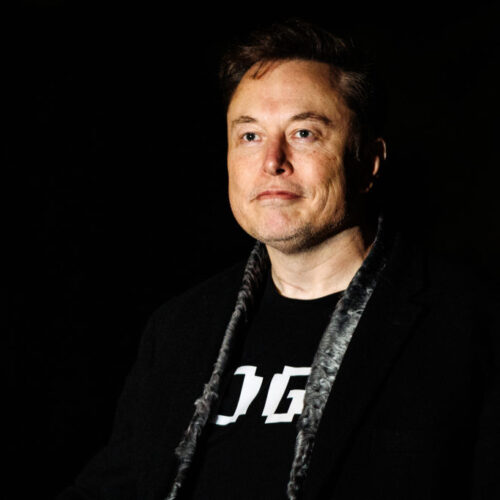Normal view
Humain planning $10B VC fund to invest in US, European, and Asian startups
Elon’s DOGE Is Reportedly Using Grok AI With Government Data
The billionaire's chatbot is now a federal tool.
-
Latest Tech News from Ars Technica

- Musk’s DOGE used Meta’s Llama 2—not Grok—for gov’t slashing, report says
Musk’s DOGE used Meta’s Llama 2—not Grok—for gov’t slashing, report says
An outdated Meta AI model was apparently at the center of the Department of Government Efficiency's initial ploy to purge parts of the federal government.
Wired reviewed materials showing that affiliates of Elon Musk's DOGE working in the Office of Personnel Management "tested and used Meta’s Llama 2 model to review and classify responses from federal workers to the infamous 'Fork in the Road' email that was sent across the government in late January."
The "Fork in the Road" memo seemed to copy a memo that Musk sent to Twitter employees, giving federal workers the choice to be "loyal"—and accept the government's return-to-office policy—or else resign. At the time, it was rumored that DOGE was feeding government employee data into AI, and Wired confirmed that records indicate Llama 2 was used to sort through responses and see how many employees had resigned.


© Anadolu / Contributor | Anadolu
Amanda Scales, a Musk hire who helped lead DOGE, has returned to xAI
xAI’s Grok 3 comes to Microsoft Azure
-
TechCrunch News
- Grok says it’s ‘skeptical’ about Holocaust death toll, then blames ‘programming error’
Grok says it’s ‘skeptical’ about Holocaust death toll, then blames ‘programming error’
-
Latest Tech News from Ars Technica

- xAI says an “unauthorized” prompt change caused Grok to focus on “white genocide”
xAI says an “unauthorized” prompt change caused Grok to focus on “white genocide”
On Wednesday, the world was a bit perplexed by the Grok LLM's sudden insistence on turning practically every response toward the topic of alleged "white genocide" in South Africa. xAI now says that odd behavior was the result of "an unauthorized modification" to the Grok system prompt—the core set of directions for how the LLM should behave.
That prompt modification "directed Grok to provide a specific response on a political topic" and "violated xAI's internal policies and core values," xAI wrote on social media. The code review process in place for such changes was "circumvented in this incident," it continued, without providing further details on how such circumvention could occur.
To prevent similar problems from happening in the future, xAI says it has now implemented "additional checks and measures to ensure that xAI employees can't modify the prompt without review" as well as putting in place "a 24/7 monitoring team" to respond to any widespread issues with Grok's responses.


© Getty Images
xAI blames Grok’s obsession with white genocide on an ‘unauthorized modification’
-
Latest Tech News from Ars Technica

- Report: Terrorists seem to be paying X to generate propaganda with Grok
Report: Terrorists seem to be paying X to generate propaganda with Grok
Back in February, Elon Musk skewered the Treasury Department for lacking "basic controls" to stop payments to terrorist organizations, boasting at the Oval Office that "any company" has those controls.
Fast-forward three months, and now Musk's social media platform X is suspected of taking payments from sanctioned terrorists and providing premium features that make it easier to raise funds and spread propaganda—including through X's chatbot, Grok. Groups seemingly benefiting from X include Houthi rebels, Hezbollah, and Hamas, as well as groups from Syria, Kuwait, and Iran. Some accounts have amassed hundreds of thousands of followers, paying to boost their reach while X apparently looks the other way.
In a report released Thursday, the Tech Transparency Project (TTP) flagged popular accounts likely linked to US-sanctioned terrorists. Some of the accounts bear "ID verified" badges, suggesting that X may be going against its own policies that ban sanctioned terrorists from benefiting from its platform.


© Mohammed Hamoud / Contributor | Getty Images News
xAI’s promised safety report is MIA
The OpenAI mafia: 15 of the most notable startups founded by alumni
-
Latest Tech News from Ars Technica

- Thermal imaging shows xAI lied about supercomputer pollution, group says
Thermal imaging shows xAI lied about supercomputer pollution, group says
Elon Musk raced to build Colossus, the world's largest supercomputer, in Memphis, Tennessee. He bragged that construction only took 122 days and expected that his biggest AI rivals would struggle to catch up.
To leap ahead, his firm xAI "removed whatever was unnecessary" to complete the build, questioning "everything" that might delay operations and taking the timeline "into our own hands," xAI's website said.
Now, xAI is facing calls to shut down gas turbines that power the supercomputer, as Memphis residents in historically Black communities—which have long suffered from industrial pollution causing poor air quality and decreasing life expectancy—allege that xAI has been secretly running more turbines than the local government knows, without permits.


© ©Steve Jones, Flight by Southwings for SELC
xAI’s Grok chatbot can now ‘see’ the world around it
xAI adds a ‘memory’ feature to Grok
Grok gains a canvas-like tool for creating docs and apps
The xAI–X merger is a good deal — if you’re betting on Musk’s empire
Ireland’s data regulator investigates X’s use of European user data to train Grok
Elon Musk wants to be “AGI dictator,” OpenAI tells court
Yesterday, OpenAI counter-sued Elon Musk, alleging that Musk's "sham" bid to buy OpenAI was intentionally timed to maximally disrupt and potentially even frighten off investments from honest bidders.
Slamming Musk for attempting to become an "AGI dictator," OpenAI said that if Musk's allegedly "relentless" yearslong campaign of "harassment" isn’t stopped, Musk could end up taking over OpenAI and tanking its revenue the same way he did with Twitter.
In its filing, OpenAI argued that Musk and the other investors who joined his bid completely fabricated the $97.375 billion offer. It was allegedly not based on OpenAI's projections or historical performance, like Musk claimed, but instead appeared to be "a comedic reference to Musk’s favorite sci-fi" novel, Iain Banks' Look to Windward. Musk and others also provided "no evidence of financing to pay the nearly $100 billion purchase price," OpenAI said.


© Samuel Corum / Stringer | Getty Images News

